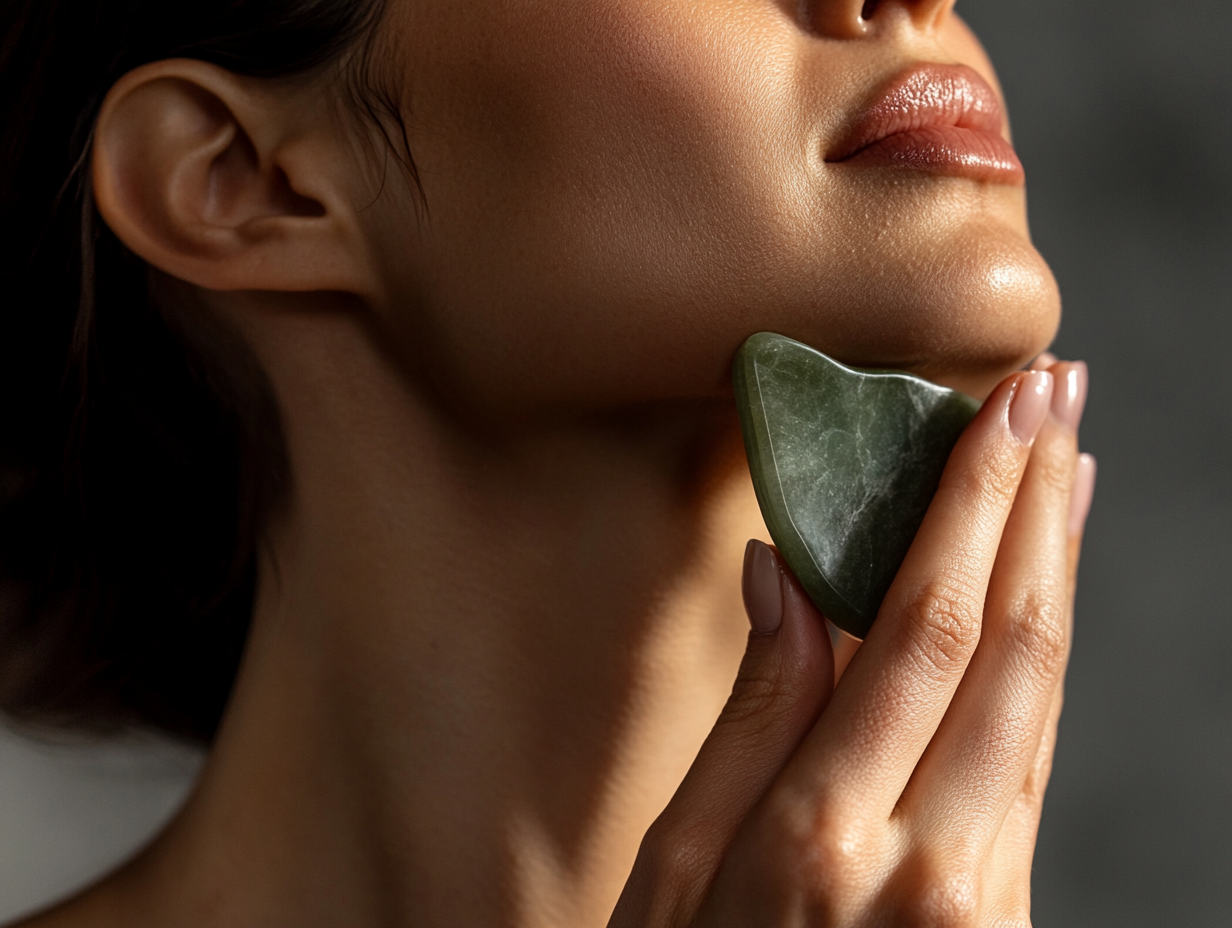If you are looking for a natural and effective way to elevate your skin, you may have considered rosehip oil. Rosehip oil is a popular ingredient in skincare and for good reasons. It has been used for centuries and has gained popularity for its healing, hydrating, and regenerative properties.
If you’re anything like us, you want to know more. You want to dig deeper and uncover just what makes this ingredient so spectacular, why it’s amazing for your face, and what the best ways to use it are.
In this ultimate guide, we will answer all these questions and more! Plus, we’ll cover everything you need to know about rosehip oil, including its history, origin, extraction methods, chemical composition, skin benefits, side effects, and best practices. By the end of this article, you will have a clear understanding of how rosehip oil can help you elevate your skincare and achieve supple, glowing, healthy skin.
What is Rosehip Oil and Why is it Good for Your Face?
Rosehip oil is a type of oil that is extracted from the seeds of rosehips, ideally by cold pressing the seeds. Rosehips are the fruits of wild roses that grow in various regions of the world, such as Europe, Asia, Africa, South America, and even Canada. They are usually red or orange and have a tangy flavor. Rosehips are rich in vitamin C, antioxidants, and other nutrients that make them beneficial for your overall health, as well as your skin.
Rosehip oil has a light yellow or amber color and a mild nutty aroma. It has a thin consistency and absorbs quickly into the skin without leaving a greasy residue. The size of the oil molecule is also small enough to penetrate deeper into the skin, and will not clog pores. It is suitable for all skin types, especially dry, sensitive, mature, or damaged skin.
Rosehip oil is great for topical use on your face because it contains a high concentration of essential fatty acids (EFAs), such as linoleic acid (omega-6) and linolenic acid (omega-3). These EFAs are vital for maintaining the health and integrity of the skin barrier, which protects the skin from environmental damage, dehydration, and infection. Rosehip oil also contains vitamin A (retinol), vitamin E (tocopherol), beta-carotene (pro-vitamin A), and lycopene (a carotenoid). These are powerful antioxidants that fight free radicals, reduce inflammation, stimulate collagen production, and improve skin texture and tone.
Some of the main skin benefits of using rosehip oil on your face are:
- Improving skin’s moisture: Rosehip oil hydrates the skin by locking in moisture and preventing transepidermal water loss (TEWL). It also nourishes the skin with essential nutrients that keep it soft, supple and hydrated.
- Acting as an anti-aging powerhouse: Due to its powerful vitamin and nutrient profile, Rosehip oil can boost collagen and strengthen elastin proteins, which help firm, plump, and tighten your skin on the cellular level. It also improves the appearance of fine lines, wrinkles, scars, stretch marks, and hyperpigmentation by increasing cell turnover and stimulating cellular regeneration.
- Providing anti-inflammatory benefits: Rosehip oil helps reduce redness, swelling, and irritation caused by acne, eczema, psoriasis, rosacea, or dermatitis.
- Rich in antioxidants: Thanks to its ample antioxidant profile, Rosehip oil works to protect the skin from oxidative stress caused by UV rays, pollution, and even internal hormonal stressors like cortisol. It helps repair the damage, including premature aging, caused by these factors.
- Boasts intensive healing properties: Rosehip oil promotes wound healing by stimulating tissue growth and cellular repair. It also helps to prevent infection by creating a protective layer over the wound, which aids in fading scars by improving blood circulation and reducing inflammation.
These are fantastic benefits, but we like to go beyond the surface and back up these claims with real science-backed information. For example, a study conducted in 2015 found that rosehips were able to significantly improve moisture, elasticity, and appearance of 34 women aged 45-65 years after eight weeks of use. Another study conducted in 2018 found that rosehip oil reduced the depth of wrinkles and improved the skin firmness and smoothness of 20 women aged 35-65 years after six weeks of topical application. Furthermore, a study conducted in 2019 found that rosehip oil enhanced the wound healing process and reduced the scar formation of 10 patients with post-surgical scars after 12 weeks of topical application - pretty impressive, right? We’re applauding this little ingredient right there with you!
These studies show that rosehip oil has a seriously incredible effect on the skin from improving moisture to boosting collagen to regenerating cells to healing skin conditions and wounds. It also suggests that it may be used as a safe and natural alternative to synthetic or invasive treatments.
How to Use Rosehip Oil on your Face: Best Practices and Tips
Now that you’re super clear on what rosehip oil is and why it's so amazing for your face and skin, you may be wondering how to use it. Here are some common questions paired with best practices and tips on how to apply rosehip oil to your face and get the most out of it.
How often should I use rosehip oil for my face?
The frequency of using rosehip oil for your face depends on your skin condition and goal. Generally, you can use rosehip oil once or twice a day, preferably in the morning and at night. We recommend using it during the day in a hydrating and illuminating face oil, like Dew Brightening Face Oil, and at night in a retinol alternative like Fountain Phyto Retinol to reap the benefits of its high vitamin A content to boost collagen and help repair wrinkles.
Can I leave rosehip oil on my face overnight?
Yes, you can and should leave rosehip oil on your face overnight, as it can help nourish and repair your skin while you sleep. Rosehip oil can also help balance your skin’s natural oil production and prevent dryness or flakiness. Using it in a collagen-boosting and wrinkle-repairing retinol alternative like Fountain will also provide anti-aging benefits for your skin overnight.
How to apply rosehip oil to your face:
The best way to apply rosehip oil to your face is after cleansing and before applying any other water-based moisturizer or sunscreen. Here are the steps to follow:
- Wash your face with a gentle cleanser like Halo Brightening Oil Cleanser or Prism Restorative Oil Cleanser.
- Dispense a few drops of a product that contains rosehip oil, such as Dew Brightening Face Oil in the daytime or Fountain Phyto Retinol at night.
- Pat and press the product onto your face and neck, then gently massage any remaining product using circular motions. Avoid rubbing or pulling your skin too hard.
- Wait for a few minutes until the oil is fully absorbed into your skin.
- Follow up with a moisturizer or sunscreen of your choice if needed.
Conclusion
Rosehip oil is the supercharged, multi-tasting skincare ingredient you have been missing that can help you improve your skin health and appearance. Thanks to its ultra-high concentrations of vitamins A, B, C, and E, it boasts exceptional cellular regenerative and restorative benefits, such as stimulating collagen production, calming inflammation, and helping to repair fine lines and wrinkles. It is also shown to effectively moisturize skin, locking in water and preventing TEWL.
We hope this ultimate guide has helped you learn everything you need to know about using rosehip oil on your face. You can also share your feedback or questions with us in the comments section below.
Thank you for reading and glow on!
FAQ’s
Is Rosehip oil safe for pregnancy?
- Rosehip oil is considered safe for pregnancy and breastfeeding, in fact, products like Fountain Phyto Retinol, which contain organic rosehip oil, are a great option for those looking for a safe retinol alternative, thanks to its abundance of vitamin A. Rosehip oil is also helpful for rehydrating dry skin that can result from pregnancy and postpartum hormones, as well as helping to fade pregnancy related hyperpigmentation. During pregnancy, the skin experiences several changes.
What to look for when buying Rosehip oil?
- When buying rosehip oil or products that contain rosehip oil, you should look for the following factors: origin, extraction method, packaging, and ratio. You should choose rosehip oil that comes from regions that have a cold and dry climate, such as Chile, South Africa, or Bulgaria and, ideally, is organic. You should also choose rosehip oil that is extracted by cold-pressing, which preserves the natural nutrients and antioxidants of the oil. You should also choose rosehip oil that is packaged in dark, opaque, or amber glass, which blocks out light and prevents oxidation. Finally, read your labels and choose products where Rosehip oil is one of the first few ingredients, so you’re getting a solid dose of it with each use.
Is Rosehip oil better than retinol?
- Rosehip oil and retinol are both effective ingredients for improving skin health and appearance, but they have different mechanisms of action and benefits. Rosehip oil contains natural vitamin A (retinol), which stimulates collagen production and increases cell turnover, but in a lower concentration and potency than synthetic retinol therefore it is more tolerable for sensitive skin. Retinol, on the other hand, is a synthetic form of vitamin A that has a higher concentration and potency than natural retinol, which can be hard on sensitive skin. However, retinol also has more side effects and risks than rosehip oil, such as irritation, peeling, dryness, photosensitivity, and teratogenicity (causing birth defects). Therefore, rosehip oil may be better than retinol for people who have sensitive skin, are pregnant or breastfeeding, or prefer natural products. Retinol may be better than rosehip oil for people who have more severe or stubborn skin issues, are not pregnant or breastfeeding, or do not mind synthetic products.
Is Rosehip oil good for older skin?
- Rosehip oil is a great option for older skin, as it can help reduce the signs of aging and improve the skin’s elasticity and firmness. Rosehip oil can also help prevent further damage and aging by protecting the skin from oxidative stress and inflammation. However, rosehip oil may not be enough to reverse the effects of aging that have already occurred, such as deep wrinkles, sagging, or loss of volume. Therefore, rosehip oil may be best used as a preventive or complementary treatment for older skin, rather than a sole or curative treatment.




